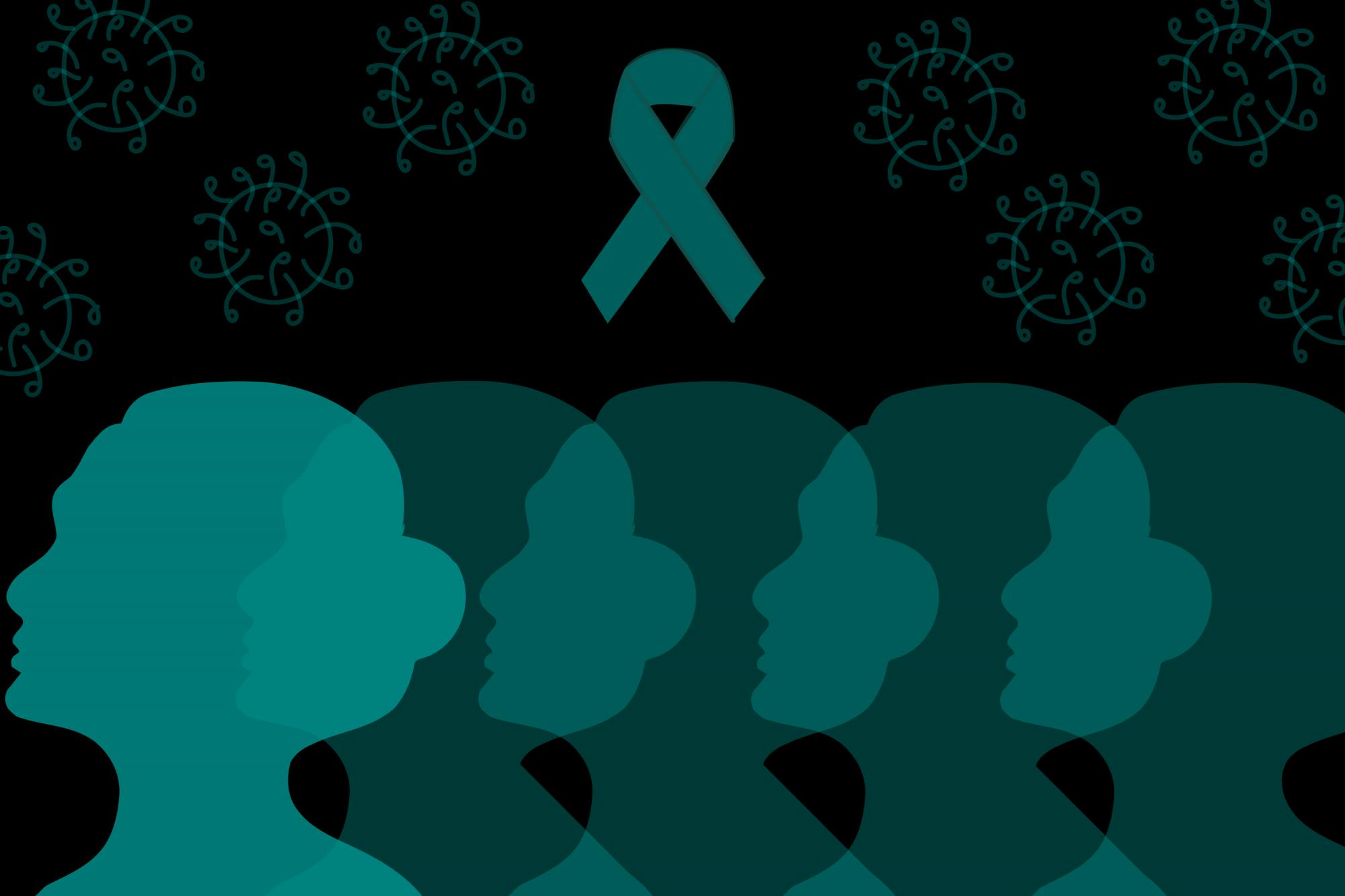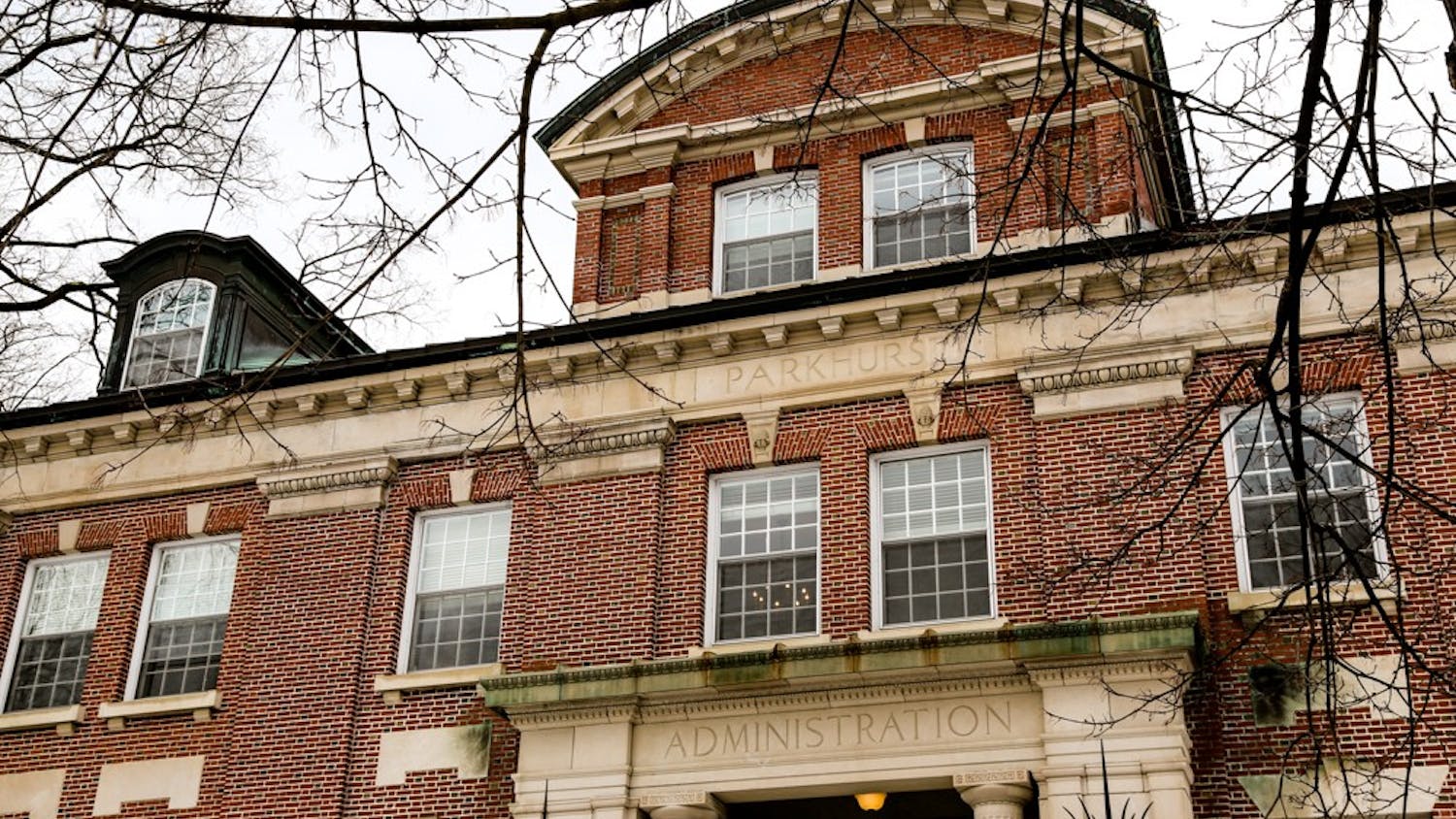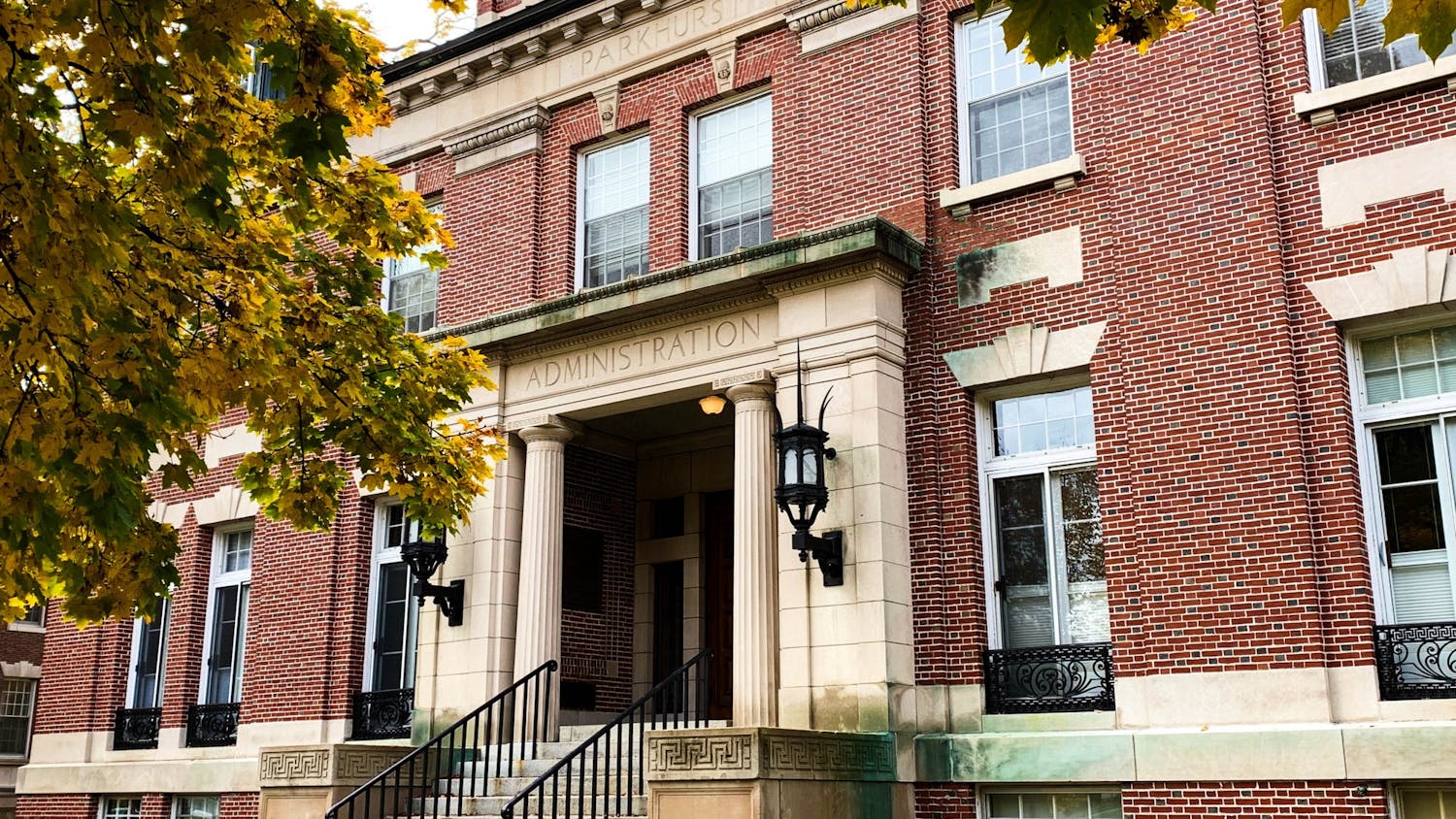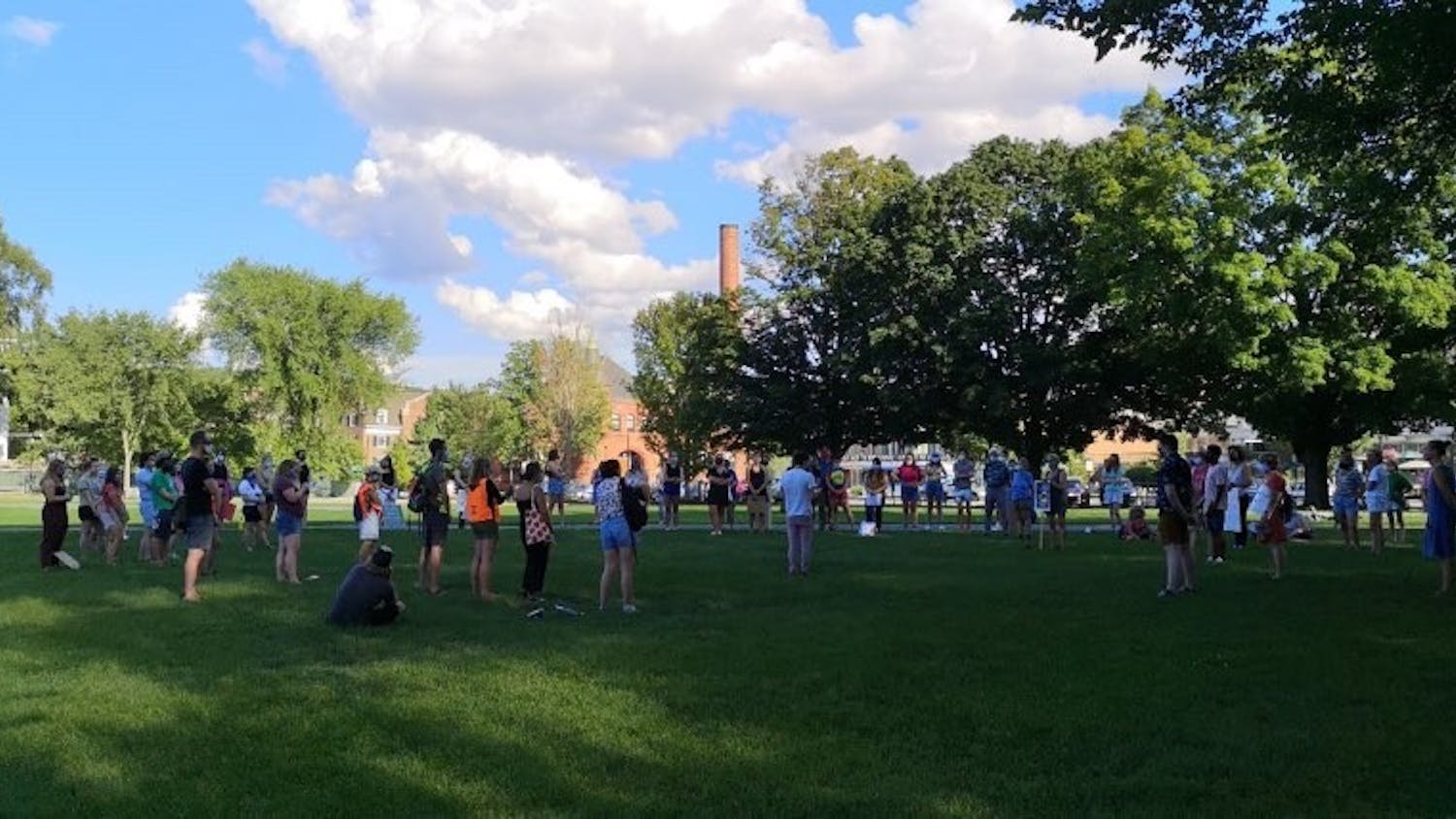Basements aren’t open. The flow of Keystone has ebbed. Moving shoulder to shoulder with strangers in a fraternity feels like a distant memory. With COVID-19 regulations changing the social scene on campus, some might assume that sexual violence is less likely to occur than in a normal term. But for many, these regulations add yet another layer of friction in reporting instances of violence at a time when the resources available to survivors might not be suited to the current context.
So how does Dartmouth balance the need to keep the community safe from both a global pandemic and endemic sexual violence?
The Sexual Violence Prevention Project was initiated as part of College President Phil Hanlon’s Moving Dartmouth Forward plan in January 2015. Coordinated by the Student Wellness Center, SVPP aims to reduce sexual assault, relationship violence, stalking and harassment at Dartmouth through a four-year prevention curriculum.
Before COVID-19, SVPP programming consisted of students gathering at least once per term in small groups. Trained student facilitators led discussions around topics like sexual violence resources on campus and recognizing moments of potential harm.
The pandemic inevitably prompted SVPP to rework its approach to programming. According to Benjamin Bradley, assistant director for violence prevention at the SWC, the SVPP team thought a lot about the skills that the program aims to build, like cultivating healthy relationships, and how to work creatively in order to deliver them online.
“We can deliver information in different ways, and we also wanted to be really thoughtful about how to include student voices because student voices are central to the work we do,” Bradley said.
Alongside the logistical challenges of delivering SVPP programming remotely, the team has adapted the program’s messaging to suit the new context. As its first goal, SVPP aims to increase student awareness and comfort around resources available to those impacted by sexual violence. On top of the existing stigma, fear and uncertainty that have long surrounded these resources, students now might also fear punishment for breaking COVID-19 regulations if they report an incidence of violence.
Bradley acknowledged this concern, noting that SVPP has taken these factors into consideration with prevention programming.
“If students are feeling nervous or concerned about getting into trouble in regards to COVID, that might feel like a barrier for wanting to get support and students are less likely to feel comfortable intervening,” Bradley said.
A Title IX exception to the College’s COVID-19 policies protects students reporting incidents of sexual misconduct from disciplinary action in most cases. However, Title IX coordinator Kristi Clemens agrees that fear of repercussions still might deter students from reporting violence.
“If you’re at a party that exceeds the numbers [allowed by the “Community Expectations” agreement] and an incident happens, [the COVID-19 policy] violation is not really the most important thing going on,” Clemens said.
She added that the Title IX office has yet to use the exception.
Maggie Flaherty ’21, executive chair of the Student and Presidential Committee on Sexual Assault, agreed that despite the Title IX exemption, COVID-19 safety violations are still a likely barrier to reporting violence.
“It’s scary if there’s a big party that’s not supposed to be happening, and there’s probably an added layer of guilt or shame that further complicates the process of reporting,” Flaherty said. “I’m really glad there’s an amnesty policy in place, but I don’t think that that completely eliminates the barrier that the code places on someone who might be trying to report.”
Flaherty also said that during the pandemic, she has noticed that the conversation around sexual violence has received less focus as other concerns take priority. Shifting to a sort of “survival mode,” people might not have the capacity to be thinking about the issue.
Bradley mentioned that the surge in use of dating apps not only at Dartmouth, but at college campuses across the country, might create additional opportunities for sexual violence to occur.
According to Clemens, the Title IX office has responded to dating app violence in the past, but because there was a severe drop in reported incidents in the fall term, they have not dealt with any cases of dating app violence that occurred during the pandemic. Still, SVPP is trying to adjust its curriculum to anticipate different situations students might experience this year.
“We’ve been folding in situations with COVID into the experiences,” Bradley said. “We’ve been trying to capture that dynamic through having opportunities to think realistically how COVID is a barrier that can impact bystanders and our ability to have healthy relationships and positive sexual experiences as we’ve made it online.”
Andrew Bricklin ’23 has been a member of the SVPP student advisory board, which helps develop and implement SVPP programming, since last winter. He feels that SVPP’s mission is even more important now that campus looks quite different.
“Sometimes people misunderstand what SVPP is and what it means,” Bricklin said. “It’s not just the school saying, ‘Don’t commit sexual assault.’ It’s really designed to change campus culture and change the way students interact with each other and their attitudes toward communicating with others, supporting people, friendships and all kinds of relationships.”
Both Clemens and Bradley agree that gatherings are still happening, whether they are in dorms or off campus. Regardless of stereotypes, sexual violence doesn’t just occur in Greek spaces — and assuming otherwise can be dangerous.
“I’ve heard that less harm is occurring because these big social spaces where people believe the majority of sexual violence occurs are closed,” said Mikayla Hubner ’21, another member of SVPP’s student advisory board. “But sexual violence also includes stalking, dating violence, verbal abuse or any type of sexual assault or rape. Just based on that definition, it’s not limited to these big party situations.”
Clemens estimated that the number of reports from undergraduate students in the fall term was at or close to zero, which she called “terrifying.” Low numbers of reports can inaccurately suggest that less harm is occurring during the pandemic.
“I’ve talked with my Ivy peers, and they feel the same way in that when [the pandemic] is over, we might get a crush of reports of people who didn’t want to come forward at the time,” Clemens said.
However, Clemens said that it is common for people to be reluctant to report right away, noting that during the spring and summer terms, the Title IX office pursued several investigations for incidents that occurred earlier in the year.
Even if students might be more hesitant to report sexual misconduct, Bradley said that the College’s resources are still available this term. These resources include the Title IX office, the WISE campus advocate, Dick’s House and Safety and Security, as well as Dartmouth-Hitchcock Medical Center and the WISE 24-hour crisis hotline.
“I think another important thing for everyone to know is that the resources that were available for students before COVID happened are absolutely still in place,” Bradley said. “With all those resources, the number one goal for all them is to support students — and COVID doesn’t change that.”




